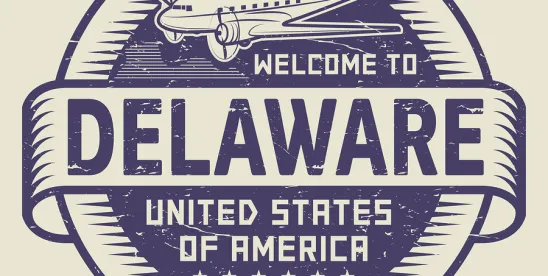In Hubert Owens, Derivatively on Behalf of Esperion Therapeutics, Inc. v. Tim M. Mayleben, et al., C.A. No. 12985-VCS (Del. Ch. February 13, 2020), the Delaware Court of Chancery (the “Court”) granted the defendants’ motion to dismiss the plaintiff’s complaint (the “complaint”) for failure to adequately plead demand futility. After analyzing the allegations in the complaint, the Court concluded that plaintiff’s claims failed because the facts alleged did not demonstrate at the dismissal stage that a majority of the board of directors (the “board”) could not exercise independent and disinterested judgment with regard to a litigation demand. The plaintiff was at all relevant times a stockholder of the Company. The members of the board and the Chief Medical Officer of the Company were the defendants.
Esperion Therapeutics, Inc. (a nominal defendant) (the “Company”) is a biopharmaceutical company whose focus is cholesterol lowering therapies. At the time of this case, the Company had almost no revenue. The Company’s investors relied on the prospect that its main drug would be brought to market quickly, resulting in significant returns on investment. In August 2015, the drug completed Phase II clinical trials. The Company’s senior management and scientists met with the U.S. Food and Drug Administration to determine the drug’s regulatory path forward. After the meeting, the Company’s leadership issued a press release followed by a conference call with investors summarizing the results of the meeting with the FDA. Both sources indicated that the FDA advised the Company that the drug would follow a fast tracked approval process, enabling the drug to be marketed without having to go through a lengthy cardiovascular outcomes trial, a step that would significantly delay the marketing of the drug. In the press release/conference call, the Company’s CEO reported that the FDA had laid out a clear regulatory path forward for the drug.
However, when the FDA subsequently released its summary of the meeting, it expressed doubt that the drug had a clear regulatory path forward. Over the following months, the Company’s stock price proceeded to fall nearly 75% as a result of the summary and ongoing uncertainty regarding the regulatory path of the drug. The Company’s stockholders initiated a securities class-action in Michigan and this case in Delaware asserting breach of fiduciary duties by Company executives and board members. The defendants filed a motion to dismiss the complaint. They argued that the plaintiff failed to plead demand futility with particularity as required under Delaware Court of Chancery Rule 23.1.
The Court analyzed the plaintiff’s burden under the Rales case, requiring the plaintiff to plead particularized facts creating reasonable doubt that a majority of the board considering the demand would be able to do so impartially. The plaintiff attempted to satisfy his burden by putting forth two arguments: that a majority of the board faced a substantial likelihood of liability and that a majority lacked independence from interested fiduciaries such that the board could not exercise independent and disinterested judgment regarding a demand. The plaintiff alleged that the directors were exposed to liability for a claim not exculpated under the Company’s charter because they either authorized the material public misstatements or failed to correct the same. The plaintiff attempted to argue that a majority of the board intentionally misled the Company’s stockholders, breaching their fiduciary duty, by actively contributing to the alleged misstatements in the press release. The Court disagreed, stating that the plaintiff’s allegations did not plead particularized facts that would raise a reasonable inference that a majority of the board knew the Company’s statements in the press release were false.
The Court also concluded that the plaintiff had failed to adequately allege oversight liability for a majority of the board. Given that there was an exculpatory clause in the Company charter, the plaintiff was required to show that the allegedly misleading statements were made in bad faith; mere negligence, or even gross negligence, in making the statements would not be enough. To meet this burden, the plaintiff pointed to one quote from a presentation made to the board a few days after the meeting with the FDA. However, the Court, noting that it was not required to draw unreasonable inferences despite an obligation to draw all inferences from particularized facts in favor of the plaintiff, surmised that despite that quote, the presentation, taken as a whole, actually supported the defendants’ arguments given that it contained nearly identical language to the Company press release. As a result, the plaintiff failed to meet his burden of demonstrating bad faith.
The plaintiff’s final allegations asserted that a majority of the board were interested, excusing the need to make a demand to the board. To meet this threshold, the plaintiff attempted to cast several board members as interested due to the fact that several board members’ venture capital firms profited from the prior sale of another pharmaceutical company that had been operated by key members of the Company’s management team. The plaintiff alleged that this fact, combined with the investments made by board members’ venture capital firms in the Company, proved that a majority of the board was impartial.
The Court rejected this line of reasoning, stating that merely owning stock in a company is not enough to render a director impartial. Lastly, the allegation that a director is interested due to a naked assertion of a previous, highly successful business relationship cannot serve to meet the applicable standard.
The Court held that the plaintiff failed to carry his burden of pleading demand futility with particularity and accordingly dismissed the complaint.




 />i
/>i
